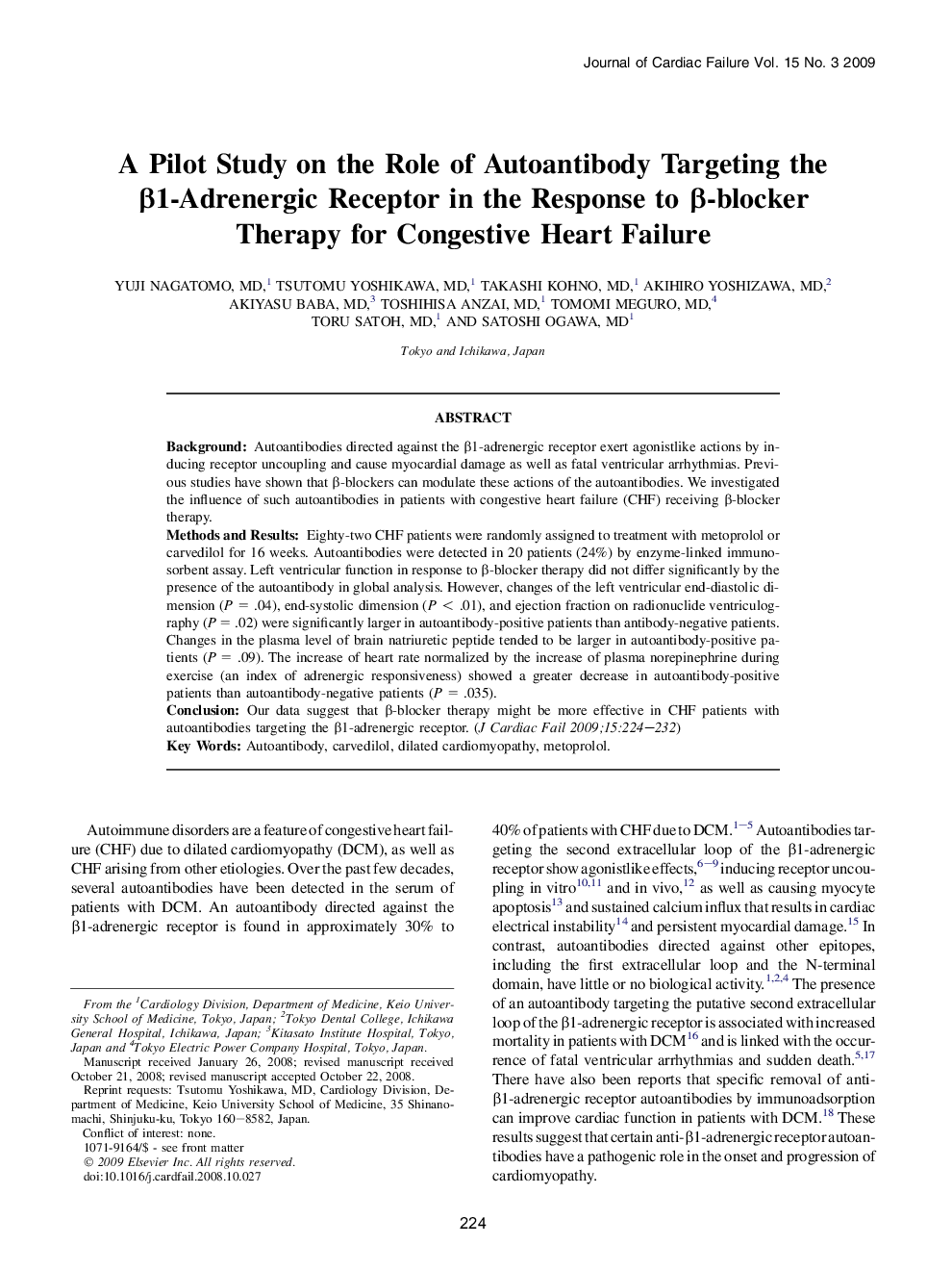| Article ID | Journal | Published Year | Pages | File Type |
|---|---|---|---|---|
| 2962303 | Journal of Cardiac Failure | 2009 | 9 Pages |
BackgroundAutoantibodies directed against the β1-adrenergic receptor exert agonistlike actions by inducing receptor uncoupling and cause myocardial damage as well as fatal ventricular arrhythmias. Previous studies have shown that β-blockers can modulate these actions of the autoantibodies. We investigated the influence of such autoantibodies in patients with congestive heart failure (CHF) receiving β-blocker therapy.Methods and ResultsEighty-two CHF patients were randomly assigned to treatment with metoprolol or carvedilol for 16 weeks. Autoantibodies were detected in 20 patients (24%) by enzyme-linked immunosorbent assay. Left ventricular function in response to β-blocker therapy did not differ significantly by the presence of the autoantibody in global analysis. However, changes of the left ventricular end-diastolic dimension (P = .04), end-systolic dimension (P < .01), and ejection fraction on radionuclide ventriculography (P = .02) were significantly larger in autoantibody-positive patients than antibody-negative patients. Changes in the plasma level of brain natriuretic peptide tended to be larger in autoantibody-positive patients (P = .09). The increase of heart rate normalized by the increase of plasma norepinephrine during exercise (an index of adrenergic responsiveness) showed a greater decrease in autoantibody-positive patients than autoantibody-negative patients (P = .035).ConclusionOur data suggest that β-blocker therapy might be more effective in CHF patients with autoantibodies targeting the β1-adrenergic receptor.
